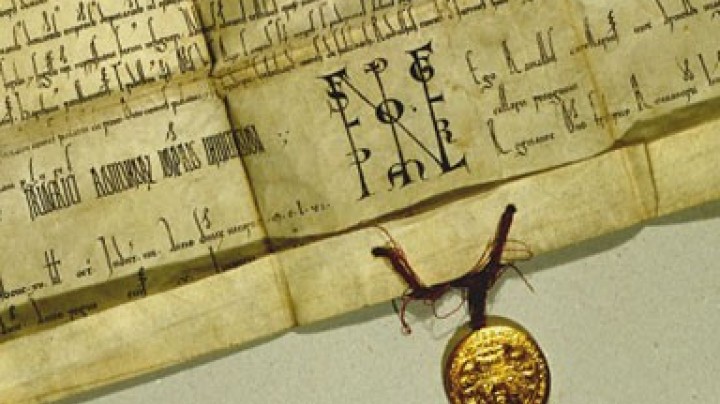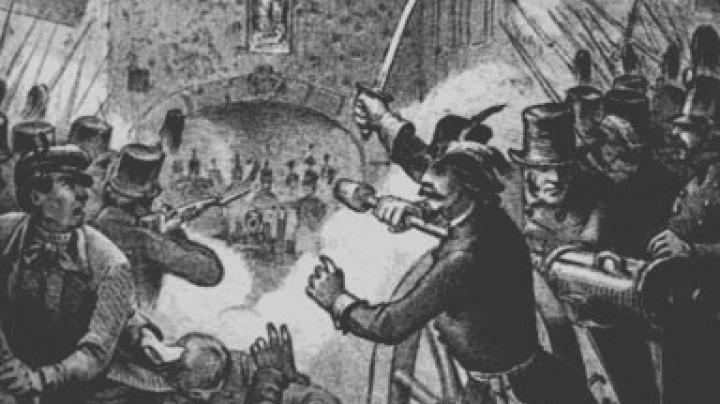Fraternal strife: Emperor Frederick III versus Duke Albrecht VI
Habsburg against Habsburg – a frequent occurrence in the history of the dynasty. The war between Frederick and Albrecht was decided by the elder brother surviving the younger.
After his coronation in Rome, Emperor Frederick III returned to the sobering exigencies of everyday governance in Austria: conflicts with the nobility led to armed clashes and severely limited the scope of Frederick’s power. In June 1452 the newly-crowned emperor returned to Wiener Neustadt – and was promptly besieged by rebel Austrian forces. The Styrian mercenary Andreas Baumkirchner managed to relieve him, but the following autumn the emperor was forced to hand over his twelve-year-old ward Ladislaus to the rebels at the ‘Stone Cross’ outside Vienna. The Austrians greeted the young Ladislaus with acclamations; he resided in the palace at Vienna, but died only a few years later in Prague. With his death the two crowns of Bohemia and Hungary that Ladislaus had borne were once again lost to the Habsburgs: George of Poděbrady now became king of Bohemia, and Matthias Corvinus (Hunyadi Mátyás) king of Hungary.
Ladislaus's death also marked the end of the Albertine line of the dynasty, a circumstance which meant that the division of power in the family had be re-established: as head of the family, Emperor Frederick III staked prior claim to the inheritance, but his brother Duke Albrecht VI also wanted a share of power. What Frederick was prepared to grant him, namely the regency of Austria above the Enns, was not enough for Albrecht: he wanted the whole of Austria.
Albrecht proceeded to exploit the dissatisfaction of the Austrian nobility with Emperor Frederick III and advanced against Vienna with an army. The situation reached a crisis when the emperor was besieged in Vienna in 1462. In this war between the brothers, Frederick, the weaker of the two, received support from the King of Bohemia, George of Poděbrady, who also negotiated a settlement between the warring parties: Duke Albrecht VI was to rule for eight years in Vienna.
However, it was not to be: the unrest continued and it seemed that another fraternal war was about to break out. Then in December 1463 Albrecht died suddenly at the palace in Vienna. Frederick, who had been the weaker of the two, emerged as victor simply by outliving his younger brother. The mercenary Andreas Baumkirchner, who had freed him from the siege and supported him loyally down the years, suffered a cruel fate some years later: as the result of a feud, the emperor had him put to death without trial.



















